‘Next six months will be the test’: CEOs brace for economic slowdown
The nation’s chief executives have warned that successive rates hikes are biting. The economy is resilient but Australia faces a major challenge ahead, they tell the 2024 CEO Survey.
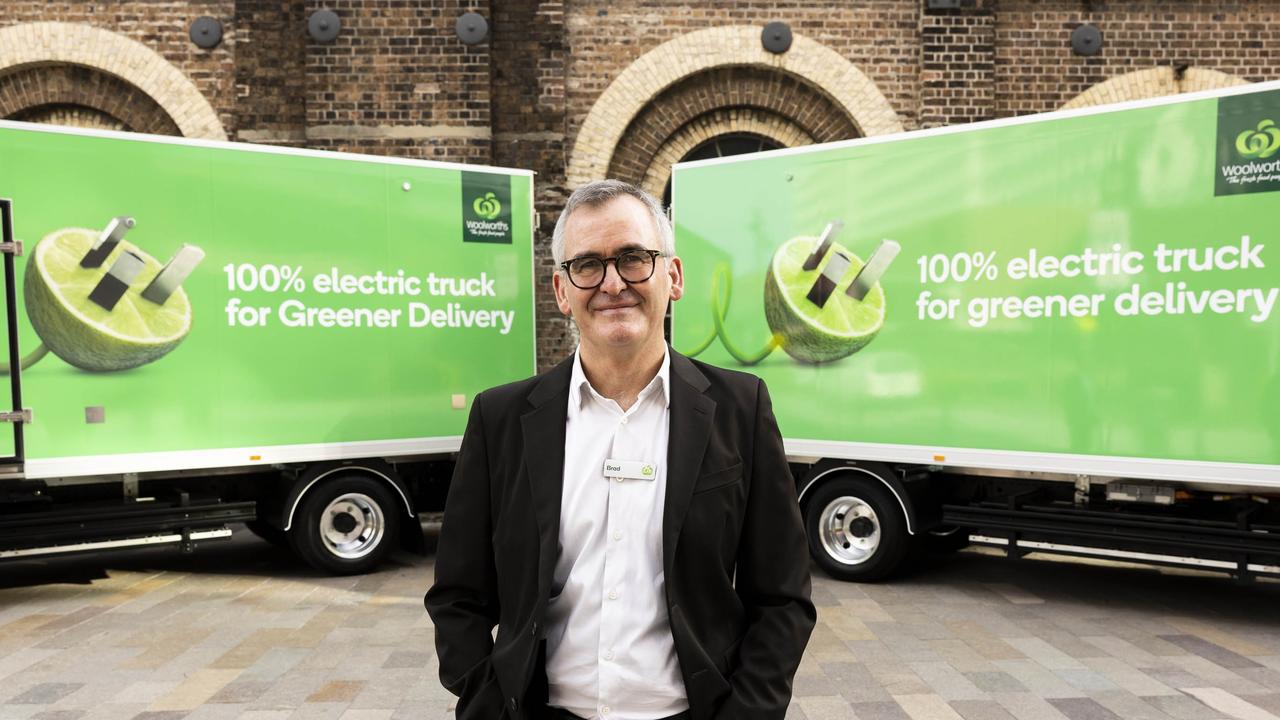
Business
Don't miss out on the headlines from Business. Followed categories will be added to My News.
The economy remains resilient heading into 2024, although Australia’s corporate bosses are preparing for a slowdown in coming months as successive interest rate hikes start to bite.
Chief executives have warned that Australians are clearly cutting back on spending as they adjust to a world of higher inflation, and this means the next six months will represent the biggest test. At the same time, the nation’s energy challenge is immense, with labour and materials shortage putting 2030 targets at risk.
Even with the recent shake-up of immigration rules, skills shortages remains an issue holding many businesses back. While rapid re-regulation of the jobs market is an emerging threat to the economy, they say. There is even a view that the Reserve Bank may not be done raising interest rates.
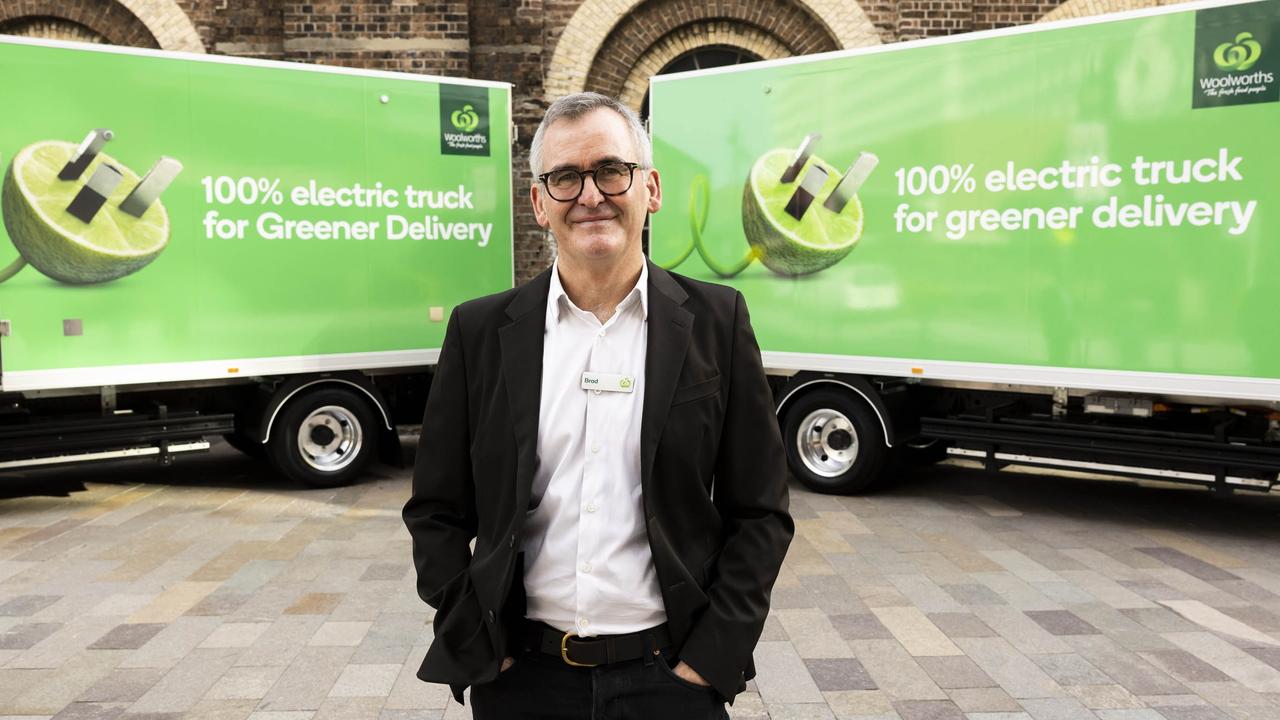
These are the views of 70 leading chief executives as part of The Weekend Australian’s CEO survey ahead of 2024, with bosses aware of the immense challenges ahead but who are confident the nation can navigate a soft landing for the coming period.
“My starting point is simple – I’d rather be in Australia than anywhere else,” Westpac chief executive Peter King said. While there is a slowdown coming in the economy it looks as though this could be achieved with minimal job losses, he added.
Business leaders have been adjusting over the past year to rapidly shifting economic conditions brought about through successive interest rate rises. The nature of Australia’s runaway inflation has shifted as goods prices have come down with supply chains reopening, while services-linked inflation has become entrenched. Businesses too have been responding to higher wage demands from employees and tight labour markets.
Social issues and reputation have also become a new frontier for business, with many big businesses throwing support ahead of last October’s Indigenous voice referendum, but the proposal was comprehensively defeated at the polling booth. At the same time, players like Qantas have felt the wrath of customers and investors even while profits were booming. A string of new industrial relations laws is resulting in rapid re-regulation of the workplace and is testing relations with the Albanese government.
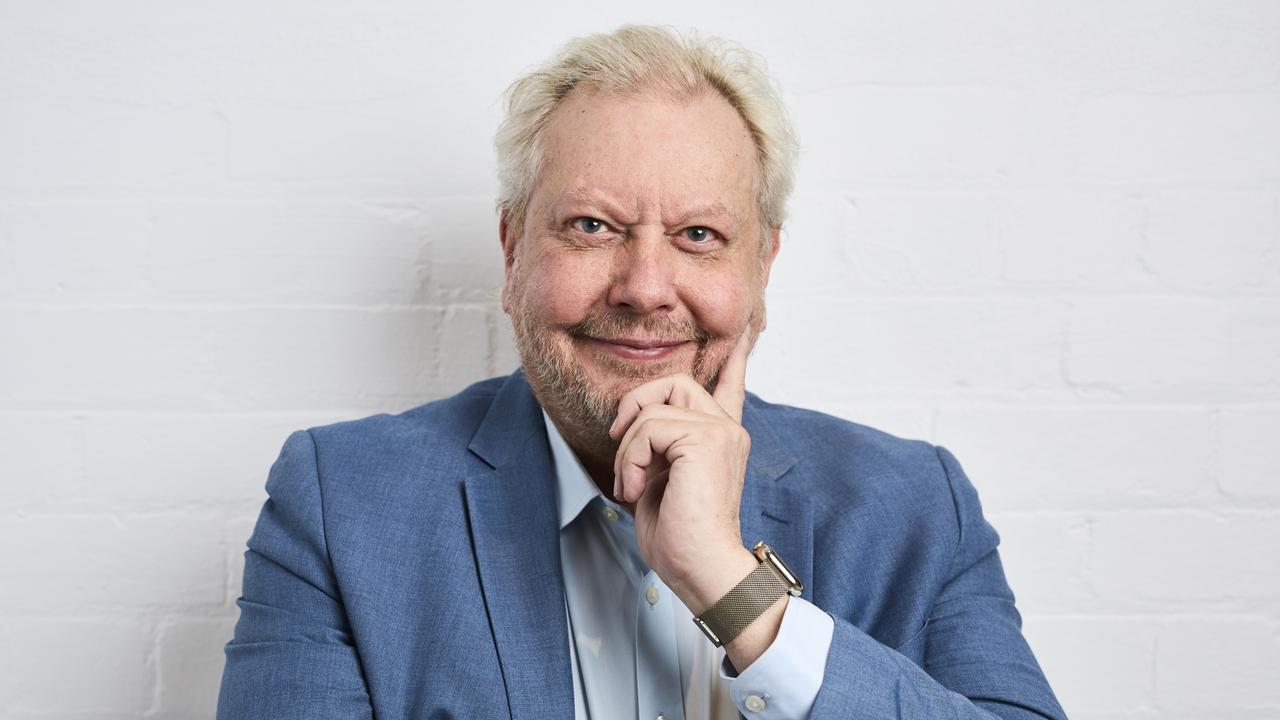
Commonwealth Bank chief executive Matt Comyn said while the economy continues to slow, it is proving to be resilient even with the Reserve Bank attempting to tackle inflation.
“The prospect of a recession in 2024 remains low, although there are risks if high inflation persists and the RBA has to raise interest rates further. However, given the sharp rise in interest rates over the past 18 months, we think we are at or very close to the top of the current rate cycle,” the Commonwealth Bank boss said.
CEO Survey 2024
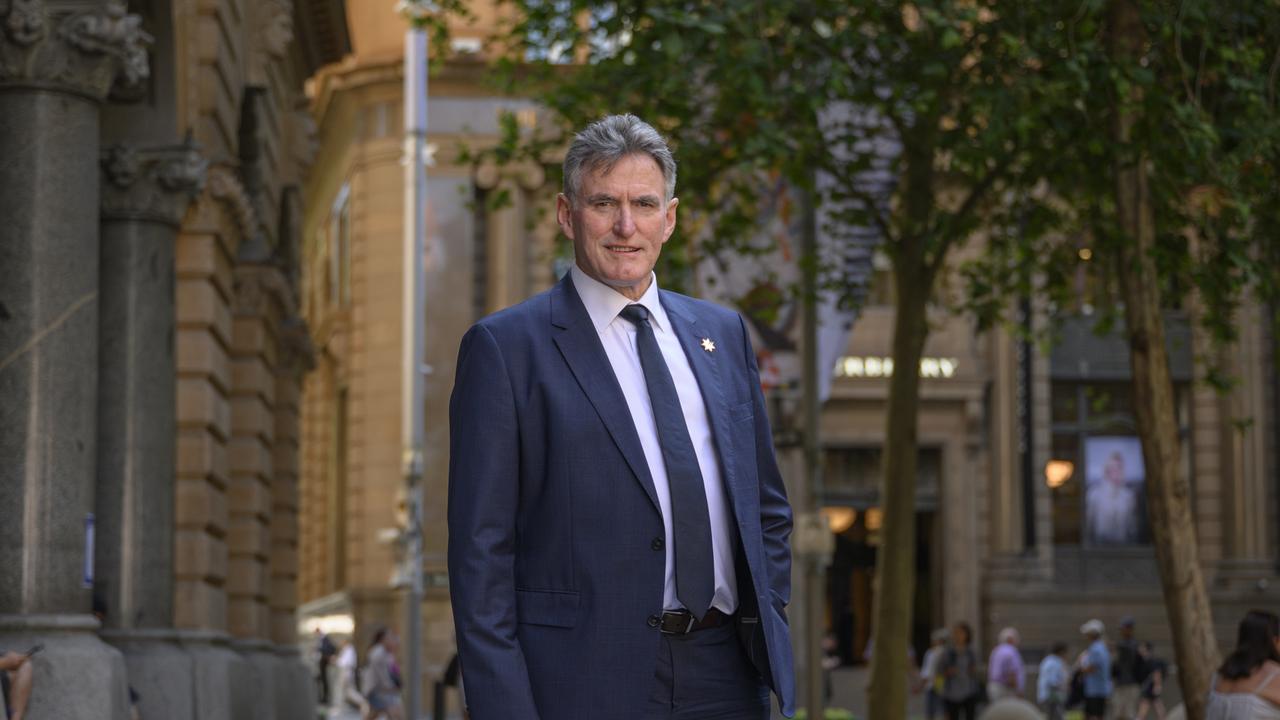
‘This will be the test’: bosses brace for slowdown
The nation’s chief executives have warned that successive rates hikes are biting. The economy is resilient but Australia faces a major challenge ahead, they tell the 2024 CEO Survey.
Businesses are bracing for a tough coming six months with the economy set to grow at just 1.75 per cent at an annualised rate, according to Treasury forecasts released this week, before starting to pick up towards the back end of calendar 2024. The slowdown is set to come about as cost-of-living pressures and higher interest rates continue to weigh on demand.
“There’s no doubt customers are facing cost of living challenges, and we’re seeing that most acutely in the mortgage belt with young families and in high rent areas with young singles and couples,” Woolworths chief executive Brad Banducci said. Even beyond those customers, he warns that many households “are under real pressure”.
So too, the very tight labour market conditions of last year have begun to ease, although strong broader demand is keeping unemployment levels at near record lows. One factor that could weigh heavily is a slowdown in China, with the outlook for that economy set to influence the entire region.
Telstra chief executive Vicki Brady said there were positives around the economy but inflation is going to be the challenge for policy makers and business for the coming year.
“Controlling inflation will take pulling a range of levers and getting the balance between those right. That’s easy to say, but not easy to do,” Ms Brady said.
CSL chief executive Paul McKenzie said there must be a better way for Australia to access migration talent, particularly if we want to compete in advanced, high-end manufacturing.
“Uniquely skilled individuals have choices. When governments (be it Australia or our peer nations) implement increasingly difficult migration processes that are either not fit for purpose or fail to provide reasonable security of tenure, it very specifically impacts a country’s attractiveness as a location and the ability to maintain world-class operations locally,” Mr McKenzie said.
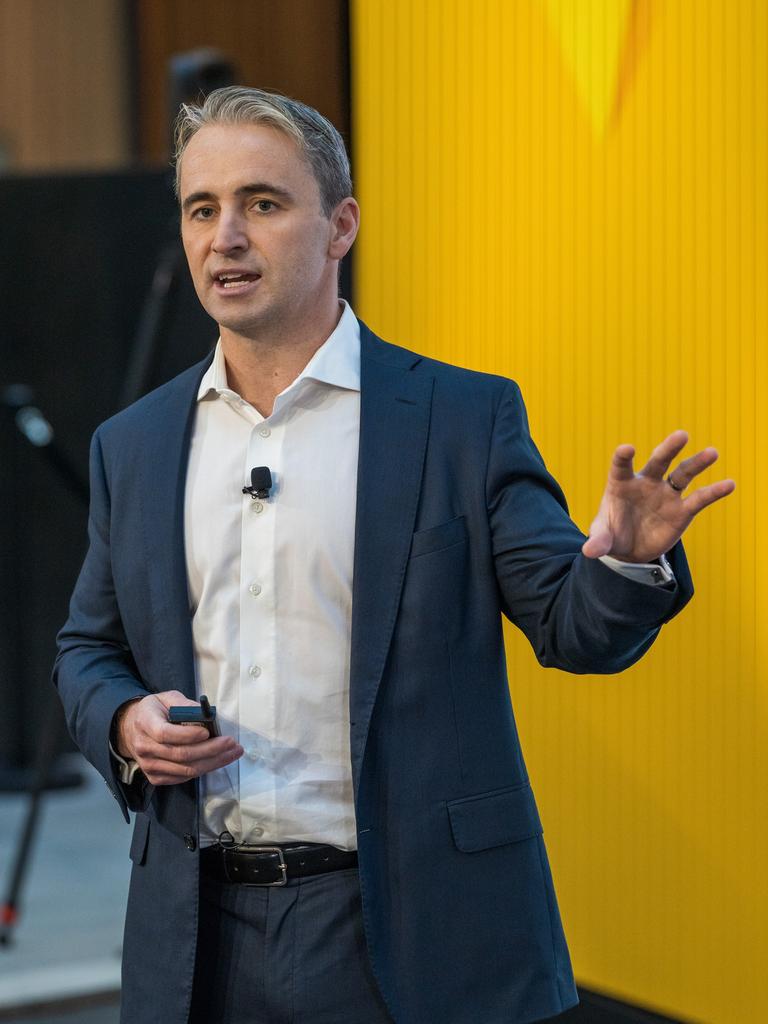
BHP chief Mike Henry cautioned that while there is plenty to be optimistic about in the Australian economy, it faces a tipping point with a number of significant and increasingly urgent underlying structural challenges.
Here households are battling through a cost-of-living crisis, the housing market is tight, and we have an ageing population. Productivity growth is at 60-year lows. Business investment as a share of GDP is at low levels not seen in 40 years, the BHP boss said.
“Australia needs a greater diversity of sectors to match the leading economies with which we compete. We need to encourage investment in the people, technology and skills required to create a modern economy, more efficient assessment and permitting for major projects, investment in strategic infrastructure to unlock resources and a stable policy environment to encourage global capital to flow to Australia’s shores,” Mr Henry said.
Meanwhile, Woodside chief Meg O’Neill has raised concerns around Australia going slow when it comes to approving new developments across energy and resources.
“Without certainty around project approvals, Australia’s position as a globally competitive investment destination is challenged and we risk missing the opportunity to demonstrate leadership in the energy transition,” Ms O’Neill said.
Macquarie’s chief executive Shemara Wikramanayake points out that uncertainty around when interest rates will stabilise “is more challenging than their absolute level”. And this has been weighing on business confidence.
The Macquarie boss said economic growth in Australia will slow further as we head into 2024, but a recession is likely to be avoided.
“Slower global growth and tight monetary policy settings will remain key headwinds for the economy, but population growth from immigration and exposure to key global growth sectors will continue to provide some support.”

Seven Group chief executive Ryan Stokes said there are “strong demand tailwinds” that support mining, infrastructure, construction and energy transition.
But there is no doubt consumers and the broader housing market are facing pressure after the 18-month aggressive hiking stance of the RBA.
“Given the current challenges with housing affordability and rapid increase in mortgage costs, the situation is precarious for consumers,” Mr Stokes said.
Others, including Suncorp’s CEO Steve Johnston, argue more work needs to be done in making the nation resilient in the face of a changing climate. This includes flood mitigation infrastructure and treating flood plains with respect when it comes to building projects.
“While we have recently seen positive government and insurance industry action, we need to maintain momentum,” Mr Johnston said.
Coles boss Leah Weckert continued the same theme, urging focus on transport infrastructure, including reliable road and rail links for more isolated communities.
“Over the past year alone, we have witnessed the fragility of supply chains across Australia. Rail outages and road closures have challenged our supply chain and hampered the transportation of food and groceries,” Ms Weckert said. “As we face into a summer with a greater risk of fire and heatwaves, we have been working with government and with our suppliers to prepare.”
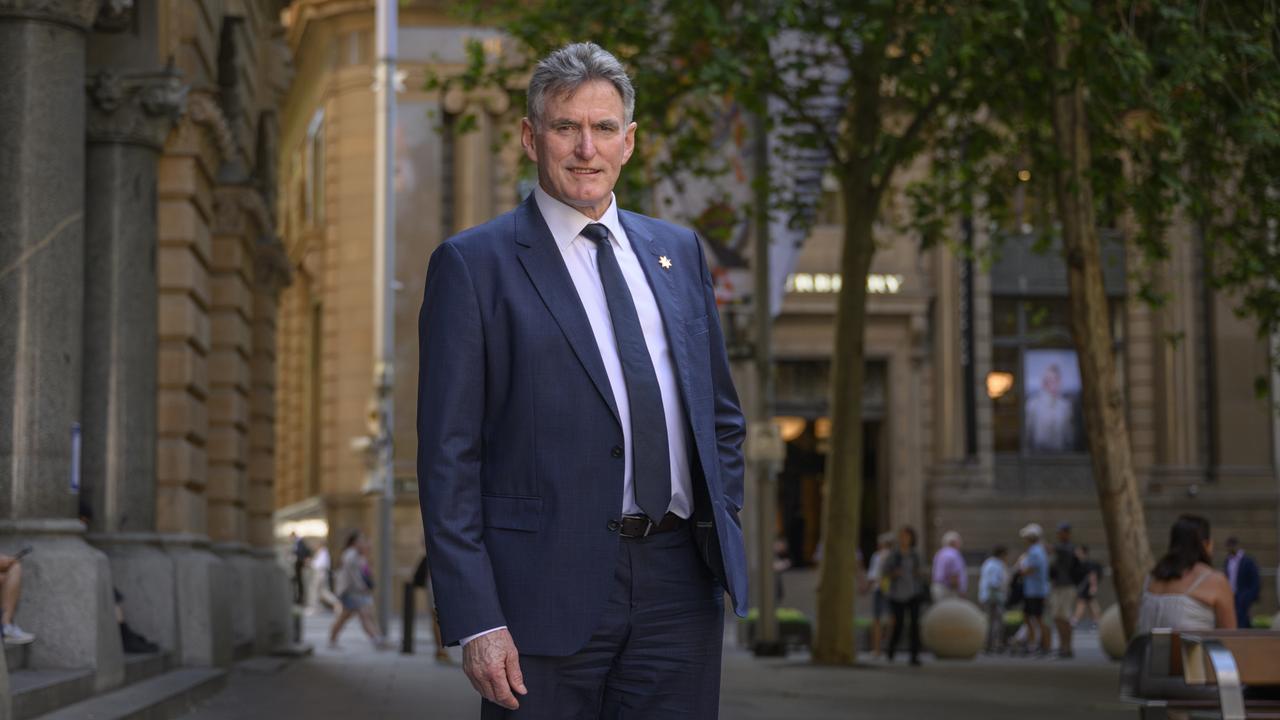
Latitude Group’s new chief executive Bob Belan said competition meanwhile is the key to Australia becoming more productive: “As a country, we need to continue to evolve our business and industrial settings so that our economy encourages greater competition across all sectors, and rewards innovation and calculated risk taking.”
Woolworths’ Brad Banducci nominates supply chain resilience as his biggest area of concern and focus, and this covers weather volatility, network connectivity and cyber security.
Insurance Australia Group’s Nick Hawkins highlights skills and labour shortages as an area ripe for reform to unlock the potential of the Australian economy. This takes in the Albanese government’s recent crackdown on immigration, with the focus on skills rather than volume. “We believe a better targeted and a more efficient migration system will address labour skill shortages and improve productivity in the motor and building repairs sector. And this needs to be complemented with greater investment in vocational training for existing and emerging jobs, as well as upskilling,” Mr Hawkins said.
“This is an important issue for our industry, as we are currently grappling with labour shortages in areas such as motor and building repairs, which are critical for our ability to help customers get back on their feet.”
Citi Australia chief executive Mark Woodruff said inflation was now very much a domestic problem and we have to be mindful of adding to pressures in the stretched economy.
“Labour costs continue to increase and combined with weak productivity growth are incompatible with anything except inflation remaining stickier for longer,” Mr Woodruff said. “Long-term enterprise agreements locking in substantial wage increases will continue to delay the RBA’s wish for inflation to return to the targeted band.”
Originally published as ‘Next six months will be the test’: CEOs brace for economic slowdown







